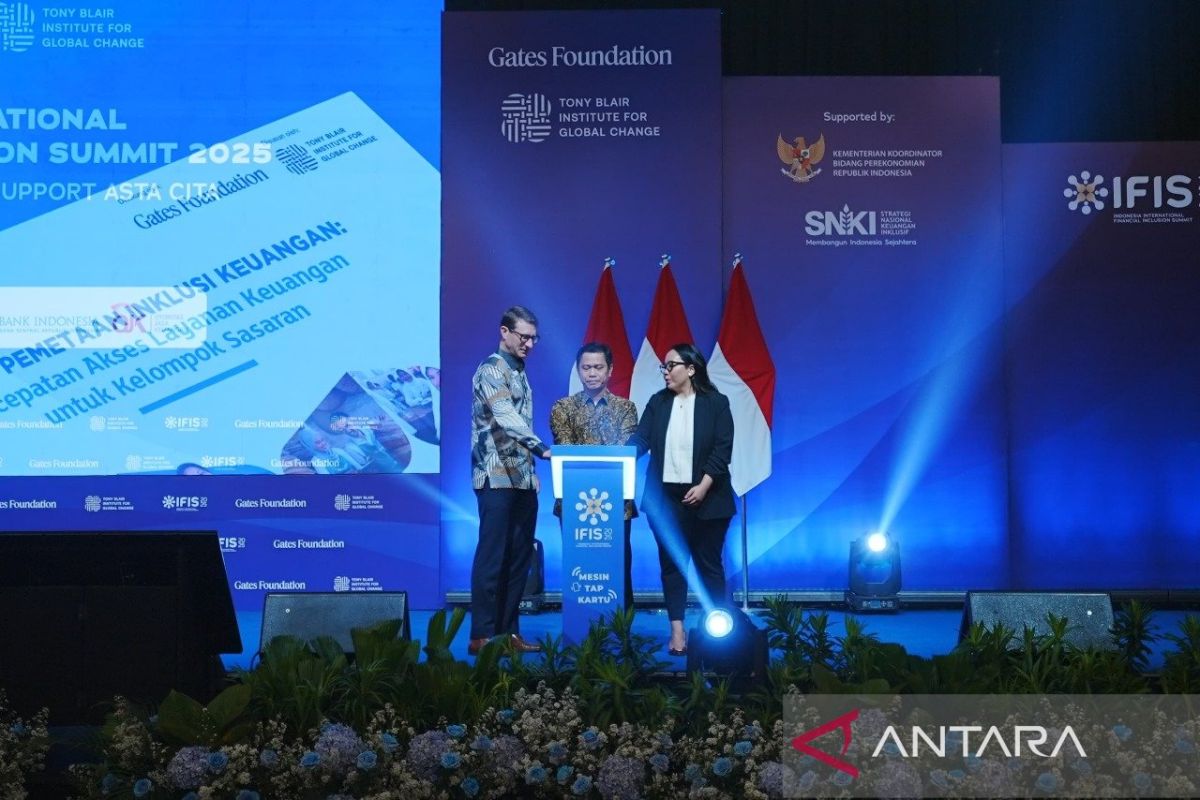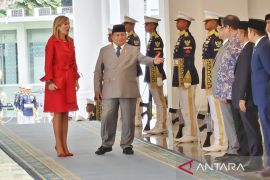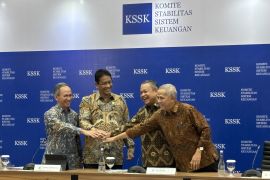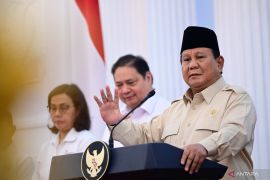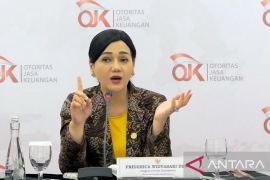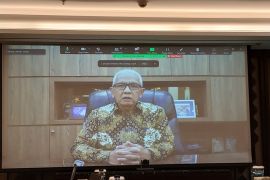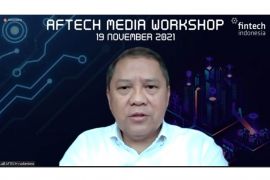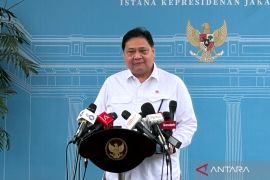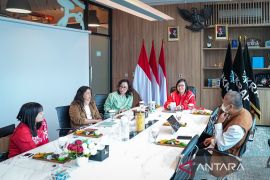This is the core of financial inclusion, an agenda that encompasses not only statistical numbers but also social justice and ethical development.
The Indonesia International Financial Inclusion Summit (IFIS) 2025, held on May 6, is a reflection of collective awareness to make financial inclusion the path toward an equal Indonesia.
The Indonesian government's commitment, as conveyed by Deputy for Trade and Digital Economy Coordination at the Coordinating Ministry for Economic Affairs Ali Murtopo Simbolon is vital in this context.
He emphasized that IFIS 2025 should be more than a discussion forum. It must serve as a platform to accelerate financial inclusion and pave the way for solving various problems that prevent Indonesians from accessing the financial services they need.
One of the key issues discussed is the development of public digital infrastructure that can accelerate financial inclusion, especially among the most vulnerable groups.
Initiated by the Tony Blair Institute for Global Change and the Gates Foundation and supported by the Indonesian government, this forum serves as a cross-sectoral meeting space for seriously examining challenges, opportunities, and pathways for inclusive financial systems.
However, financial inclusion is more than having a bank account or an ATM card. At its core, it is a fundamental right for citizens in a modern economic system.
Without access to formal financial services, savings accounts, insurance, credit, and investments, individuals will be more vulnerable to crises, face greater challenges in developing a business, and risk falling back into poverty.
This is why financial inclusion is a matter of fairness.
The rise in the national financial inclusion rate, now reaching 76.3 percent for account ownership and 88.7 percent for the use of formal financial services, is worthy of appreciation.
Related news: Government financial inclusion efforts focus on seven groups
New perspective
However, beyond that, the figures need to be read clearly: who remains unreached? In which areas is the gap still wide? Has the available access truly fulfilled the needs and capabilities of the groups served?
IFIS 2025 provided a space for these questions to be discussed.
Global Senior Director for Government Innovation & AI from the Tony Blair Institute for Global Change, Barbara Ubaldi, offered a relevant perspective. She emphasized that financial access acts as social protection in times of crisis.
The COVID-19 pandemic has proven that those lacking emergency funds or access to microcredits were forced to sell productive assets just to survive.
Therefore, resilient financial inclusion must be integrated with social protection and preparedness for economic shocks.
This is why a new perspective is needed. Financial inclusion is not only part of the economic system but also a component of the national resilience system.
Digitalization strategy was also a main topic in this forum. Leveraging public digital infrastructure is not just a solution for efficiency but a means of democratizing access.
However, rushed digitalization without inclusivity awareness could worsen inequality.
Hence, digital innovation must be based on the reality of society, the affordability of gadgets, digital literacy, and the language used in financial applications.
True digital inclusion means providing digital channels while ensuring no one is left behind.
Notably, IFIS 2025 also placed women's empowerment as the focus of discussion.
Women, especially in villages and underdeveloped areas, are often at the forefront of household economic management but have less access to financial services.
When women have access to credit, insurance, and investment instruments, the impact is manifold. It will not only strengthen household economic resilience but also break the chain of poverty across generations.
Moreover, inclusive finance must be accompanied by literacy. Without adequate understanding, the community risks falling into illegal online loans, investment scams, or unhealthy consumptive behavior.
Related news: Open bank accounts to support financial inclusion, citizens told
Inclusion acceleration
The launch of the Regional Financial Access Index (IKAD) at this forum was a strategic move to align the central government's vision with regional dynamics.
With IKAD, the role of the Regional Financial Access Acceleration Teams (TPAKD) is expected to be strengthened to identify the needs and obstacles in regions.
The Chief Executive of the Financial Services Business Actors Behavior, Education, and Consumer Protection Supervisory Agency of the Financial Services Authority (OJK), Friderica Widyasari Dewi, stated that the 552 TPAKD formed in all provinces, districts, and cities in Indonesia are key to achieving the Asta Cita missions and the Golden Indonesia 2045 vision.
This is crucial because true inclusion demands a decentralized, context-sensitive approach that respects local wisdom and avoids a one-size-fits-all model.
A new perspective that needs to be built together is to see financial inclusion as a bridge of civilization.
It is not merely a tool for transactions but also a means to build dignity. In a humane economic system, financial access is a symbol of recognition that every citizen has the right to plan for the future, not just to survive day to day.
Thus, when a state invests in financial inclusion, it is essentially rebuilding a fairer social contract between the state and its citizens.
The IFIS 2025 is not a celebration of success but rather a reminder of the big tasks that must be handled.
The digital divide, gender bias, low financial literacy, and the dominance of a financial system that is still too oriented towards big cities must be jointly tackled.
The Golden Indonesia 2045 vision must be pursued not only with economic growth but also with equal access, fair services, and the involvement of all citizens in an inclusive economic system.
The challenge ahead is to avoid the trap of new exclusivity in a system that claims to be inclusive. It is because inclusion that only talks about figures without real meaning will only hide inequality with deceptive statistics.
At the end of the day, financial inclusion reflects how far we can share economic power with the often marginalized.
The IFIS 2025 has opened the space for this discussion. Now, it is time for a joint movement. There is no fair development without inclusive finance.
Related news: Indonesia's OJK boosts financial inclusion in rural areas
Editor: Rahmad Nasution
Copyright © ANTARA 2025
